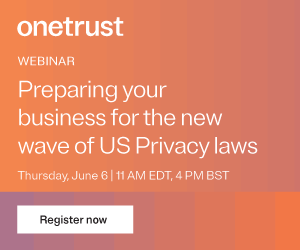The Facebook-Cambridge Analytica revelations have sent shock waves around the world, and now countries are responding in various ways, whether it is by holding hearings or conducting investigations.
The ramifications of the incident are being felt in Canada, as well. A revised estimate now states 622,161 Canadian citizens had their data improperly shared. Privacy Commissioner of Canada Daniel Therrien said he was not surprised to hear that more than 600,000 people were involved.
Therrien's office and the Office of the Information and Privacy Commissioner of British Columbia have announced they are launching an investigation into AggregateIQ and its role in the Facebook situation. To pile on, members of the House Ethics Committee may begin studying the ways federal political parties are using personal data, as well.
While the OPC said it's committed to investigating Facebook-Cambridge Analytica, the privacy commissioner has repeatedly called for changes to Canadian privacy laws to include data use by political parties. Currently, political parties are exempt from federal privacy laws. The Facebook-Cambridge Analytica news may be the first step toward changing the rules, but when or if that will happen remains unknown.
Acting Minister of Democratic Institutions Scott Brison said the federal government is not ready to make the legislative changes needed to put political parties under privacy law, CBC News reports. Brison said the government is open to discovering a “uniform approach” toward implementation, even if it does not involve changes to current laws, but, he added, he does not want to develop an action plan before consulting all the political parties first.
Developing privacy policies for political parties may harm their abilities to reach out to their constituents, Brison added.
The Toronto Star Editorial Board released an op-ed on why Canada needs to have political parties covered under federal privacy law. By being exempt from those laws, political parties have shown, on occasion, to be less careful with personal data. The Star cited two examples of such behavior, such as when Minister of Citizenship Jason Kenney sent 2,000 emails to the LGTBQ community explaining the government’s record on gay refugees in 2012, and Liberal Party member Alladin Abou Sharbin sent an email to his supporters calling for their vote in a campaign in Quebec. The email contained the home addresses, phone numbers and membership IDs of Liberal Party members.
“As data-mining techniques become more sophisticated, these holes in the law become more consequential,” the editorial board wrote. “The Cambridge Analytica data harvest was used to derive not only voters’ preferences and habits, but also their aspirations and anxieties. Such sensitive information should not be obtained without the consent of those providing it, based on a clear view of how the information will be used.”
Calls for political parties to be reined in may multiply after the Toronto Star reported all three of the major Canadian political parties have purchased citizen data, while the Conservative Party even named the data firm from where they bought the information. The party’s director of communications, Cory Hann, said the conservatives did business with Canada411 to buy information, including names, addresses and telephone numbers.
“The only personal information we have is information voluntarily given to us or basic publicly available information,” Hann wrote in a statement. “The party will always follow all rules, regulations, and laws just as we always have.”
The situation has led some to look toward the future to see if similar data-sharing practices will affect future elections.
Point Blank Creative Director of Research and Strategy Michael Roy said the influence of data in the 2016 U.S. presidential elections may be the wake-up call the government and regulators need to make major changes. Roy said regulators and the government are behind in the ways they safeguard data and that it is the government’s job to ensure similar instances do not happen again.
“I worry that this is a case of closing the barn door after the horse has left, and that this won't prevent what happened in the Trump campaign,” Roy said. “But folks are already hard at work at what happens in the next election and I think we're actually seeing some of that rolling out across Canada already. This is the next step in the political arms race, and I suspect after the Ontario election we'll see more talk about that.”
British Columbia Freedom of Information and Privacy Association President Mike Larsen said Canada is operating under an outdated view of democracy, and it is time to update that vision to ensure proper regulations are in place. "This is now baked into our system," Larsen said. "We haven't had a really detailed conversation as a society about what this means, what we want to see in terms of transparency on these issues so we are playing catch up on this."
The debate about political parties and privacy law, as well as the Facebook-Cambridge Analytica revelations, are far from over. As more news develops, calls for political parties to fall under the umbrella of federal privacy laws will likely intensify.































Comments
If you want to comment on this post, you need to login.